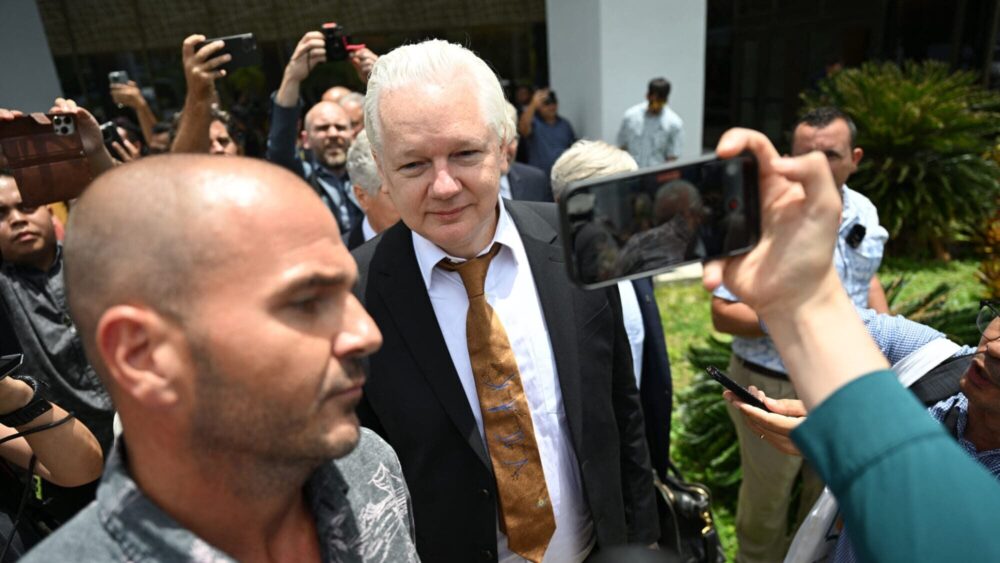
WikiLeaks founder Julian Assange leaves the U.S. Federal Courthouse in the Commonwealth of the Northern Mariana Islands
Yuichi YAMAZAKI / AFP
Julian Assange’s 14-year legal saga has come to an end after he pleaded guilty—in the U.S.’ smallest and most remote federal district court—to obtaining and publishing American military secrets.
The WikiLeaks founder left HM Prison Belmarsh in London, where he had been held facing the threat of extradition to the U.S. for more than five years, on June 24th, after the U.S. Department of Justice agreed to drop 17 charges of espionage against him.
According to The Daily Telegraph, the U.S. may have done this under the impression that the likely incoming Labour government would never allow Assange to be extradited.
Assange took a flight from Stansted Airport to the Northern Mariana Islands, via Bangkok, where he pleaded guilty to one count of conspiring to obtain and disclose national defence information relating to hundreds of thousands of documents concerning the Afghanistan and Iraq wars. The time he has already served in the UK counts against his sentence, meaning he need spend no more time behind bars.
Hours later, Julian’s wife, Stella, celebrated that the journalist “walks out of Saipan federal court a free man. I can’t stop crying.”
Julian walks out of Saipan federal court a free man. I can’t stop crying.#AssangeFree #AssangeJet pic.twitter.com/Uee3uKceg0
— Stella Assange #FreeAssangeNOW (@Stella_Assange) June 26, 2024
Assange is now making his way to Australia (at great personal cost), where his two children will see him on the right side of prison bars for the first time.
This is, of course, good news for Assange. But The Guardian’s editorial team suggests that it is “no triumph for press freedom. Mr. Assange’s plea has prevented the setting of a frightening judicial precedent for journalists, avoiding a decision that might bind future courts. Nonetheless, this is the first conviction for basic journalistic efforts under the 1917 [Espionage] Act.”
Peter Hitchens—the Mail on Sunday columnist who has been one of Assange’s few journalistic defenders in the UK, despite admitting that the pair are political “foes” on many issues—agreed that the charge under the U.S. Espionage Act “may be some sort of precedent.”
I think anyone on the dangerous edge of journalism, the bit where people send you secret documents to expose wrongdoings, will now be haunted by the fear that they are in danger of the worst the US Federal prison system can throw at them.
Hitchens added that although “this chapter is over now … no doubt there will be others.”
In a lengthy statement, the Department of Justice said Assange “is prohibited from returning to the United States without permission”—a location he is unlikely to rush off to anyway.
